In Kisumu, Vihiga and Siaya, farmers are facing a common challenge: fragmented and degraded land. The solutions promoted by CGIAR? Aggregating small plots into larger, community-managed farms and lands, and supporting restoration activities with technology.
This collaborative effort aims to restore landscapes, diversify production, and benefit from economies of scale. In this context, the MyFarmTrees app plays a pivotal role in restoring landscapes and enhancing productivity on aggregated farms through native tree integration and community engagement.
The initiative also addressed rural waste management by bringing together circular economy ventures and women-led recycling businesses. This not only improved waste management practices but also unlocked significant economic potential.
Contact: Dr. Carlo Fadda, Nature Positive Solutions Initiative Coordinator, c.fadda(at)cgiar.org
Operating Location: Kisumu, Vihiga and Siaya
Traditional Name: Kisumo (derived from the Luo word “sumo,” which means a place where people meet to barter); Sega or Sega Siaya; Maseno.
Area of Operation: Kisumu 2,085 Km2, Siaya 2,530 Km2, Vihiga 860 km2
Coordinates: 0.0917° S, 34.7680° E
Communities: Kisumu: large commercial farmers; Siaya and Vihiga: Small scale farmers
Description of the Area: Kisumu, Siaya, and Vihiga in Kenya are located near Lake Victoria, enjoy a favorable climate that supports the cultivation of various crops, including maize, tea, sugarcane, and vegetables. The fertile soils and ample rainfall make these areas highly productive agricultural zones.
Unlike most parts of Kisumu County, lower Nyando receives low rainfall and has increased incidences of drought. Climate change has worsened the situation, contributing to low agricultural productivity and food insecurity.





Soil degradation due to overuse, deforestation, and unsustainable farming practices threaten the long-term productivity of the land of these three regions. Climate change exacerbates these issues, leading to unpredictable weather patterns, prolonged droughts, and flooding. These challenges jeopardize food security and the livelihoods of local farmers. Additionally, the traditional isolation of farmers, who are not used to collaborating and face their common challenges individually, makes them more vulnerable to climatic and economic shocks.
Here the initiative is promoting Nature-Positive farming practices inspired from permaculture and agroecology and support farmers in putting resources and knowledge together so that unity could be strength.
The project in Kisumu, Siaya and Vihiga promotes permaculture design and tree nurseries to enhance air quality. By increasing vegetation cover, these practices help absorb pollutants, provide oxygen, and create healthier living conditions. This approach not only benefits the environment but also improves the overall well-being of the community.
Implementing agroecology and appropriate technology practices aims to improve water management in this area. These practices focus on sustainable water use and conservation techniques, ensuring that water resources are efficiently utilized and preserved. This is vital for farming activities and the community’s access to clean and reliable water sources.
The initiative conducts soil analysis and promotes the use of organic fertilizers to restore and maintain soil health. These practices enhance soil fertility, prevent erosion, and ensure sustainable agricultural productivity. Healthy soil is fundamental for long-term food security and environmental sustainability in Kisumu, Vihiga and Siaya.
By supporting community seed banks and promoting agrobiodiversity, the project aims to preserve local crop varieties and protect ecosystems. This approach maintains a diverse and resilient agricultural landscape, which is crucial for food security, ecological balance, and the preservation of traditional farming knowledge.
The initiative organizes comprehensive farmers’ training and supports women self-help groups, empowering communities with essential knowledge and resources. These efforts promote food sovereignty, sustainable livelihoods, and gender equality. Empowered farmers and communities are better equipped to adopt and maintain sustainable agricultural practices.
Utilizing carbon credits and briquette technology, the initiative aims to reduce carbon emissions in the region. These practices foster a low-carbon economy by promoting cleaner energy alternatives and enhancing carbon sequestration. Additionally, with the My Farm Trees app the initiative creates incentives for farmers to plant trees.
The CGIAR Initiative on Nature-Positive Solutions carries out its activities in partnership with numerous international and local organizations in order to leverage collaboration and the sharing of knowledge and skills and achieve the maximum possible impact. In each region several CG centers take part in the activities by contributing their expertise for the success of the entire initiative.
The project consists of interventions across five impact areas. Each intervention is on a path of continuous improvement, generating impacts across six dimensions: air, water, soil, biodiversity, equity, and climate. Collectively, these data points can be represented as an EBF ImpacTracker.
TECHNICAL NOTE
This initiative is ongoing. Endline benefit calculations are understood as “potential impacts” and not for use as a final report. Click on the icons to learn more about each impact area’s contributions or scroll down for additional details. Total scores are tabulated from the output of each ecological benefit.
Primary positive impacts generated by the Nature-Positive Solutions Initiative of the CGIAR on poverty reduction, food security, gender and social inclusion, climate mitigation and adaptation and environmental health.
Location: Kisumu, Vihiga and Siaya
Duration: 2022 – 2026
Interventions: Interventions to improve nutrition and food security revolve around the promotion of local agrobiodiversity, and in particular millet and leafy greens vegetables.
Location: Kisumu, Vihiga and Siaya
Duration: 2022 – 2026
Interventions: The core of Nature+’s work in Kenya is to help farmers pool resources and knowledge to increase their resilience, improve farming practices and create new job opportunities. Examples include women’s cooperatives that make briquettes to sell and shared permaculture farms.
Location: Kisumu, Vihiga and Siaya
Duration: 2022 – 2026
Interventions: The involvement of women from farming communities in training activities – both on agricultural practices, value chain and circular economy – and in the management of seed banks guarantees equality and inclusion.
Location: Kisumu, Vihiga and Siaya
Duration: 2022 – 2026
Interventions: Climate change mitigation and adaptation interventions focus on transforming local agricultural systems into resilient integrated systems through the reduction of inputs and the introduction of diversity-based practices.
Location: Kisumu, Vihiga and Siaya
Duration: 2022 – 2026
Interventions: By combining technology – such as the MyFarmTree app that helps farmers replant trees – with the distribution of native plant seedlings and improved agricultural practices, the health of ecosystems is restored and biodiversity is safeguarded.
About
The Nature-Positive Solutions platform is produced by The Lexicon with support from CGIAR, the Alliance of Bioversity International and CIAT, IWMI, IFPRI and CIP. Nature-Positive Solutions balance the needs of people and the planet, ensuring long-term ecological benefits, food security and livelihoods.
Team
Lexicon of Impacts is based on the Ecological Benefits Framework (EBF). This new paradigm provides a foundational architecture to radically transform global carbon, biodiversity, and ecological benefits markets. Coordinating financial institutions, UN agencies, NGOs, companies, and catalytic capital will bring attention to—and help create—a shared pathway for accelerated solutions, providing economic support for the people and projects that need it most.
This website was built by The Lexicon™, a 501(c)(3) tax-exempt nonprofit organization headquartered in Petaluma, CA.
Check out our Privacy Policy, Cookie Policy, and Terms of Use.
© 2024 – Lexicon of Impacts™